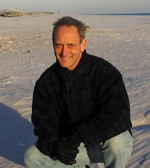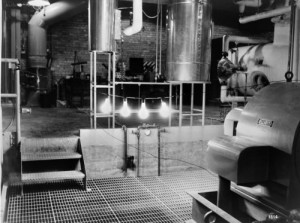
Smoke billowed from the No. 3 unit at the Fukushima Daiichi nuclear plant.
Other periods are defined by negative significant emotional events: reactor accidents at SL-1, Three Mile Island, Chernobyl, and now Fukushima Daiichi. Following each of these accidents, the worldwide nuclear community has reacted by systematically dissecting the mechanical, natural, and human responses to the accident, then squeezing every drop of information and every lesson learned from the experience. Inevitably, oversight is enhanced, nuclear regulations evolve, reactor and power plant designs are updated, worker training adjusts, and operating practices improve. Together, these responses result in a prompt jump in our collective knowledge and understanding, and increases in safety margins.
While the nuclear community's knowledge and understanding has continued to grow, we've been less successful in helping our ultimate stakeholders-the public-understand our technology. Lack of information and knowledge can lead to mistrust and fear. In this era of instant communications, social media, and streaming video in every pocket, this shortcoming can be disastrous. For example, in Germany, opponents of nuclear energy have convinced the public that nuclear plants pose an unacceptable level of risk. This despite the fact that shutting down their nuclear plants will lead to significant increased air pollution, greenhouse gas production, and loss of energy independence.
 Our mission in the Education, Training, and Workforce Development (ETWD) Division of ANS includes "educate the general public." While there is great work being done to support and promote other aspects of our mission, this is an area where we need to do a better job. Let's face it-our technology is not always easy to understand! Declining mathematics and science proficiency in our schools make the challenge of explaining nuclear science and technology tougher still.
Our mission in the Education, Training, and Workforce Development (ETWD) Division of ANS includes "educate the general public." While there is great work being done to support and promote other aspects of our mission, this is an area where we need to do a better job. Let's face it-our technology is not always easy to understand! Declining mathematics and science proficiency in our schools make the challenge of explaining nuclear science and technology tougher still.
I challenge every member of the ETWD Division (all 1,321 of us) to set aside time each month to do something to promote public education. Volunteer to speak in a classroom, tutor a student, contribute to online discussions and blogs, attend a career fair, organize a workshop for science teachers or guidance counselors, engage your local schools to improve curricula, or invite students and teachers to visit your workplace. Together we can make the "post-Fukushima era" remembered for a step change in public knowledge and understanding of nuclear science and technology, and increased awareness of the benefits that nuclear energy provides society.
We have a great program planned for the upcoming 2011 ANS Annual Conference in Hollywood, Fla. I hope to see you there!
This article first appeared on the ETWD website.
____________________________________________________

Wheeler
John Wheeler is an engineer, father, podcaster, triathlete, manager in the nuclear industry, and American Nuclear Society member. He is the chair of the ANS Education, Training and Workforce Development Professional Division. He regularly podcasts and blogs at This Week in Nuclear.














